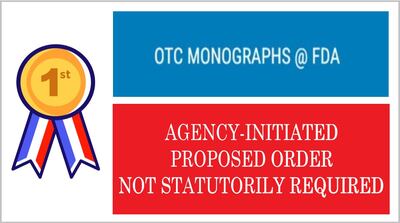Drug Safety
Brazil looks to EU, UK and others for inspiration on introducing a regulatory sandbox.
Height of plaintiff attorney’s argument to present evidence which would prompt speculation by a jury was request to parse research by Kenvue’s lead expert, who coordinated the International Consensus Statement on ADHD by the World Federation of ADHD, where he’s president.
Database review contradicts earlier findings with Novo Nordisk’s blockbuster incretin, but its small size and flawed design mean its commercial implications will be limited.
A direct communication to health care professionals says that the initial symptoms of anaphylaxis with glatiramer acetate might overlap with those of post-injection reactions and could lead to a delay in identifying an anaphylactic reaction.
Drug companies may have to adjust their benefit-risk management strategies to ensure compliance with the European Medicines Agency’s newly revised guidance on how to develop and evaluate risk minimization measures.
China has seen a “milestone year for the overseas launch of domestically produced innovative drugs.”
The European Medicines Agency is seeking feedback on how to standardize the prospective planning and reporting of cardiovascular safety endpoints in oncology trials.
Marketing authorizations for OTC medicines could be rejected if their environmental risk assessments do not meet new requirements proposed within the EU pharma legislation revision. HBW Insight speaks to regulatory law experts Tine Carmeliet and Eline D'Joos to find out what you need to know about the new rules.
The Oncologic Drugs Advisory Committee urged the FDA not to delay Imfiniz’s perioperative NSCLC indication, while also unanimously pushing for better trial designs in lung cancer and all resectable tumors.
The Oncologic Drugs Advisory Committee will vote on a product agnostic question related to perioperative trial designs during a 25 July meeting after discussing whether AstraZeneca needs an additional trial for its Imfinzi perioperative regimen in non-small cell lung cancer.
Attorneys discuss potential impacts on consumer health products industry from Supreme Court’s “Loper Bright” decision in June on litigation brought by two fisheries, Loper Bright v. Raimondo and Relentless v. Department of Commerce.
The antihistamine cyproheptadine is no longer available as a non-prescription allergy treatment in France after regulator ANSM said it had been misused for years to induce weight gain for “aesthetic purposes.”
Swedish regulator Ulla Wändel Liminga, the incoming chair of the European Medicines Agency’s Pharmacovigilance Committee, will oversee a number of projects including those she was already with such as those related to the safety of medicines during pregnancy and breastfeeding.
Sonara Health founder Michael Giles talks take-home methadone treatments, remote patient monitoring and sponsoring legislation to fund opioid treatment programs.
Not enough companies are complying with Pakistan’s pharmacovigilance rules, according to the drug regulator, which wants to remedy the situation after a previous attempt to do so failed.
Globally harmonized guidance on evaluating the viral safety of biotechnology products has undergone major revisions for the first time in over two decades to address a raft of scientific advances. Manjula Aysola explores the changes and their impact for manufacturers.
The European Medicines Agency is reviewing the known risk of agranulocytosis in people taking medicines containing the painkiller metamizole, which is approved for use in most of the EU member states but banned in the US, the UK and other countries around the world.
Proposed change is “the first FDA-initiated proposed order that was not statutorily required” by the 2020 legislation authorizing the agency’s overhaul of the program which makes the large majority of nonprescription drugs available in the US.
FDA leadership weighs in on limitations of AI as part of rollout of new technology meeting program that looks to give industry and other stakeholders a chance to inform future regulation.
The unanimous decision that the Alliance for Hippocratic Medicine lacks standing to challenge the FDA’s relaxation of the abortion pill REMS leaves unclear whether the court would have deferred to the agency’s expertise on the merits.
ADVERTISEMENT



















